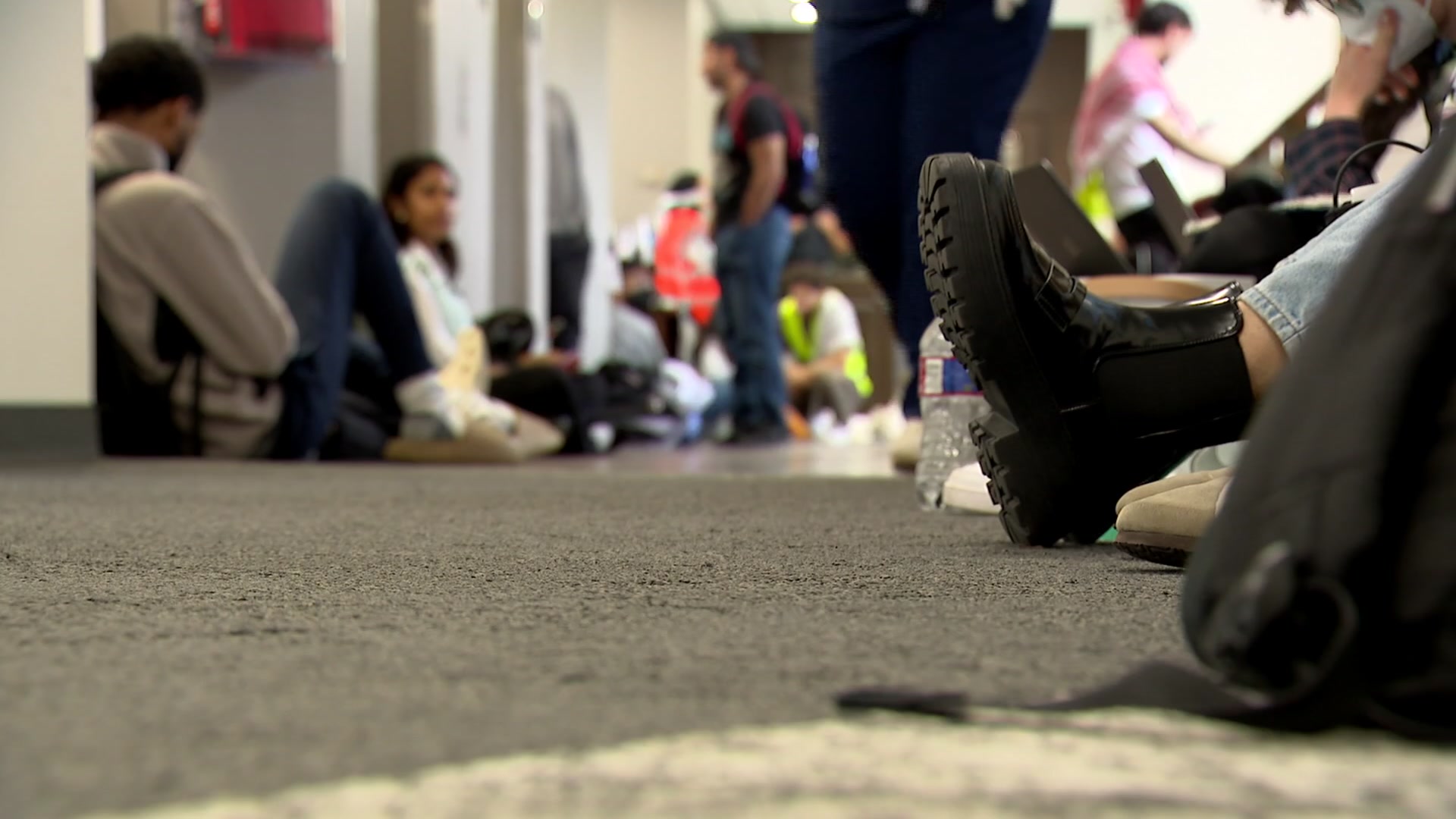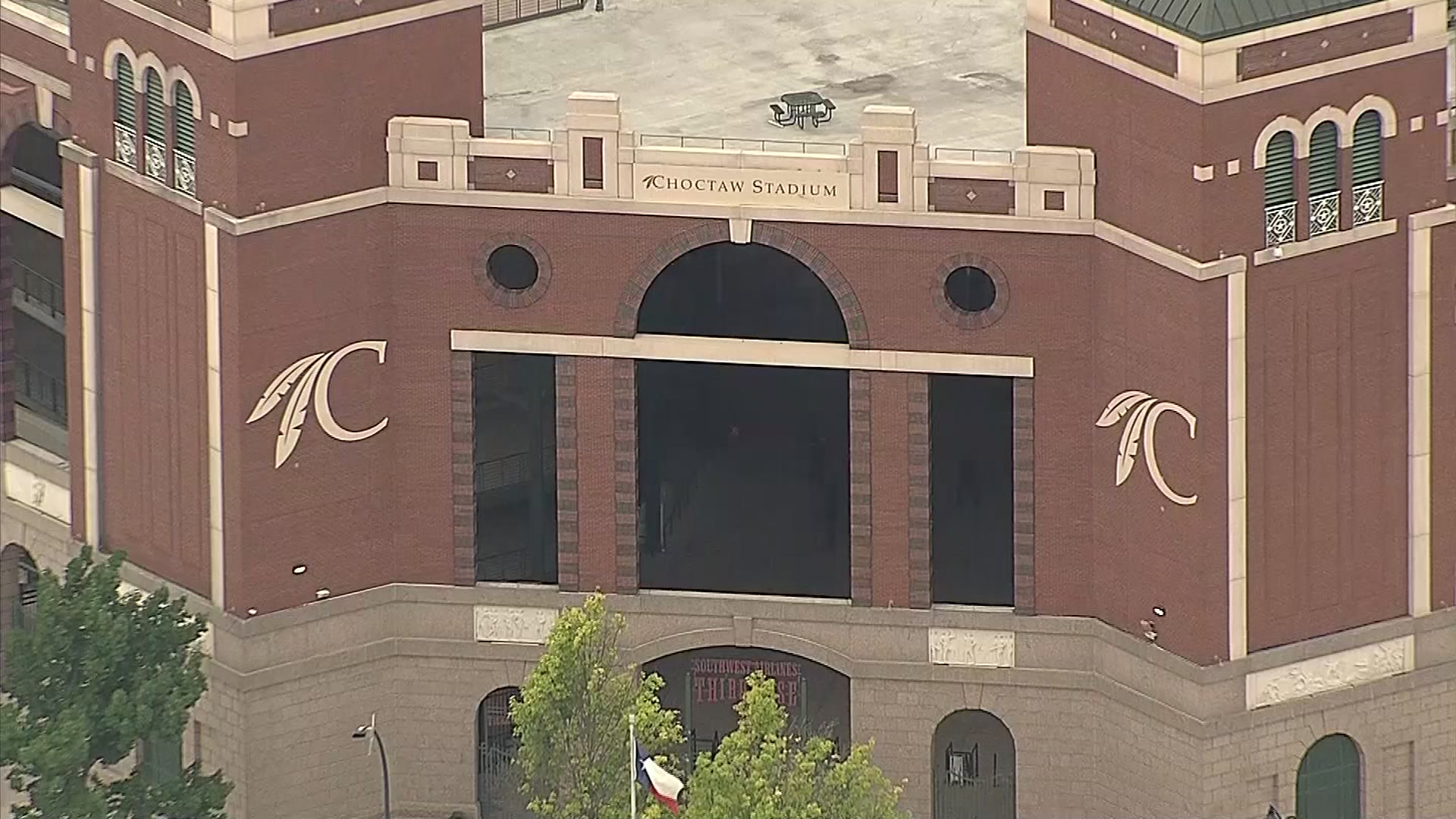What to Know About Coronavirus According to CDC
- The Delta variant is nearly twice as contagious as previous coronavirus variants.
- The greatest risk of transmission is among unvaccinated people who are much more likely to contract, and therefore transmit the virus.
- Layered prevention strategies, such as wearing masks in public places and indoors, are needed to reduce the transmission of the Delta variant and stop the epidemic.
Inside the hallways of Parkland Hospital in Dallas, men and women can be found working tirelessly to provide care to the sickest patients. Now the same health care workers who have helped COVID-19 patients for more than a year and a half are gearing up for another marathon.
"The great majority are just really, really tired, really, really, frustrated and they just want someone to listen to them," said Judy Herrington, senior vice president of nursing services at Parkland Hospital.
This comes at a time when hospitalizations have shot up. In June, there were only seven people hospitalized at Parkland with COVID-19, as of Monday it's 101.
Get DFW local news, weather forecasts and entertainment stories to your inbox. Sign up for NBC DFW newsletters.
Herrington said even though they are having to expand their units dedicated to coronavirus patients, they're struggling to meet staffing needs. This is a different challenge compared to a year ago when gloves, masks, and other equipment were lacking.
"Now I've got plenty of PPE (personal protective equipment) but what I don't have is registered nurses and respiratory therapists, so we've come full circle. It's no longer a PPE crisis, it's a caregiver crisis," said Herrington.
There are several reasons why she believes they've lost nurses. Herrington said at the beginning of the pandemic some staff left due to child care reasons when schools and daycares were either closed or moved to virtual learning.
Local
The latest news from around North Texas.
Currently, there are almost two dozen nurses on furlough because of breakthrough COVID-19 cases.
"The Delta variant is much more powerful, and unfortunately we're having people that are testing positive, even though they've had vaccines. And so if they're even remotely symptomatic, whether it's a runny nose or not, we're having to furlough them and have them stay home," Herrington explained.
She said they're also short-staffed because former employees left to become traveling nurses to make more money. They can earn upwards of $100 an hour.
"They're doing a 12-week assignment at $90 bucks an hour and as a county institution, competing at $90 bucks an hour puts me at a huge disadvantage. We don't have salaries at that kind of pay," said Herrington who explained many tend to be people in their 20s who may not need benefits due to a spouse or still under their parent's insurance.
"They're getting paid almost twice what I'm paying them, so you can't really blame them for that. Then there's the group that's left just out of fatigue, they're tired," said Herrington.
She said they have been paying more than ever and tenured nurses have received a bump in pay. At the same time, Herrington believes they're retaining their long-time employees whose needs of benefits and comfortability may be different than those of younger nurse.
To keep morale up, Herrington said they're lending an ear to staff, passing out snacks and being flexible with schedules.
They have just under 4,000 nurses in total. About 2,500 are bedside nurses, which is the group that is impacted the most by the shortage.
"They're the ones providing the care, everything from med treatments, education, family, discharge. They're the ones that are doing the labor and the frontline. They're the ones doing all the work," said Herrington.
There's usually one nurse to every four COVID-19 patients who are not needing extensive care. 'High Flow' patients, those who are maxed out on oxygen and on the verge of intubation, have a one-to-three ratio. Meaning one nurse to three patients. In regards to the Intensive Care Unit, the ratio becomes one-to-one or one-to-two.
"We have had some nights when our med surge unit where we push the nurses to one-to-five, just because we were overwhelmed with volume," explained Herrington who said they've also pulled nurses out of their clinics to help.
How Short Staffing Impacts Care
This adds another layer of stress that nurses and other health care workers have to navigate through.
"I'd say we're kind of like on our toes right now because we're, you know, everyone's moving away for some reason and then more work is coming in, again, but with less people to work, so that's a little scary," said Angel Marrufo.
Marrufo is a bedside nurse and takes care of COVID-19 patients. He said while he doesn't feel the post-traumatic stress of dealing with another wave, he has colleagues who are scared of going back to how units were in the past year.
Others are just getting ready for a repeat.
"This is kind of a disbelief, a mental preparedness to do this again because nobody wants to do it again, and I think we all had the false hope we weren’t going to have to do it again," said Morgan Davis, an ECMO, extracorporeal membrane oxygenation, specialist and registered respiratory specialist.
She's been with Parkland Hospital, the Dallas County hospital, for eight years and treated coronavirus patients all through 2020.
Davis said while it's unfortunate there's another wave occurring, she said the ECMO machine helps the sickest of the sick. She explained that once someone is on a ventilator, the ECMO machine takes a person's blood out of their body, oxygenates it, and ventilates it while the lungs are recovering.
It's state-of-the-art technology the county is fortunate to have, but Davis said the problem is staffing.
"It's a good way to save lives that we wouldn't have saved, but we're still running short on staff and being held back. We can't put as many people on ECMO based on bedside staffing, it's a little rough but we're making it through," said Davis. “It's stressful, because we know we can do more, and we know we can do better and those of us who are here and have been through this, we know that there's a delay in inpatient care from the emergency department to the Intensive Care Unit whenever we don't have available rooms or staffing. So it's frustrating that we know we can do more and we're just being held back."
There is mounting frustration from health care workers who thought the vaccines would have stopped future waves. Parkland Hospital says the majority of patients occupying beds are not vaccinated.
"It can be frustrating but, you know, at the same time I kind of understand because there are people who are scared. There are people who are getting misinformation." said Marrufo.
He said when he has patients from the Hispanic community, he resorts to Spanish, his first language, to help relate and provide information. He said he's experienced times when people ask for a vaccine, but they're already too sick.
"I wish we could get past the political narrative and see that these people that you trust with your lives are asking you to trust in the health system," said Davis eluding to the divide on vaccinations and masks.
"We're not asking for free cookies and free lunch, we just want people to reconsider and go consider getting a vaccine, because that's how they can help nursing right now," said Herrington.



